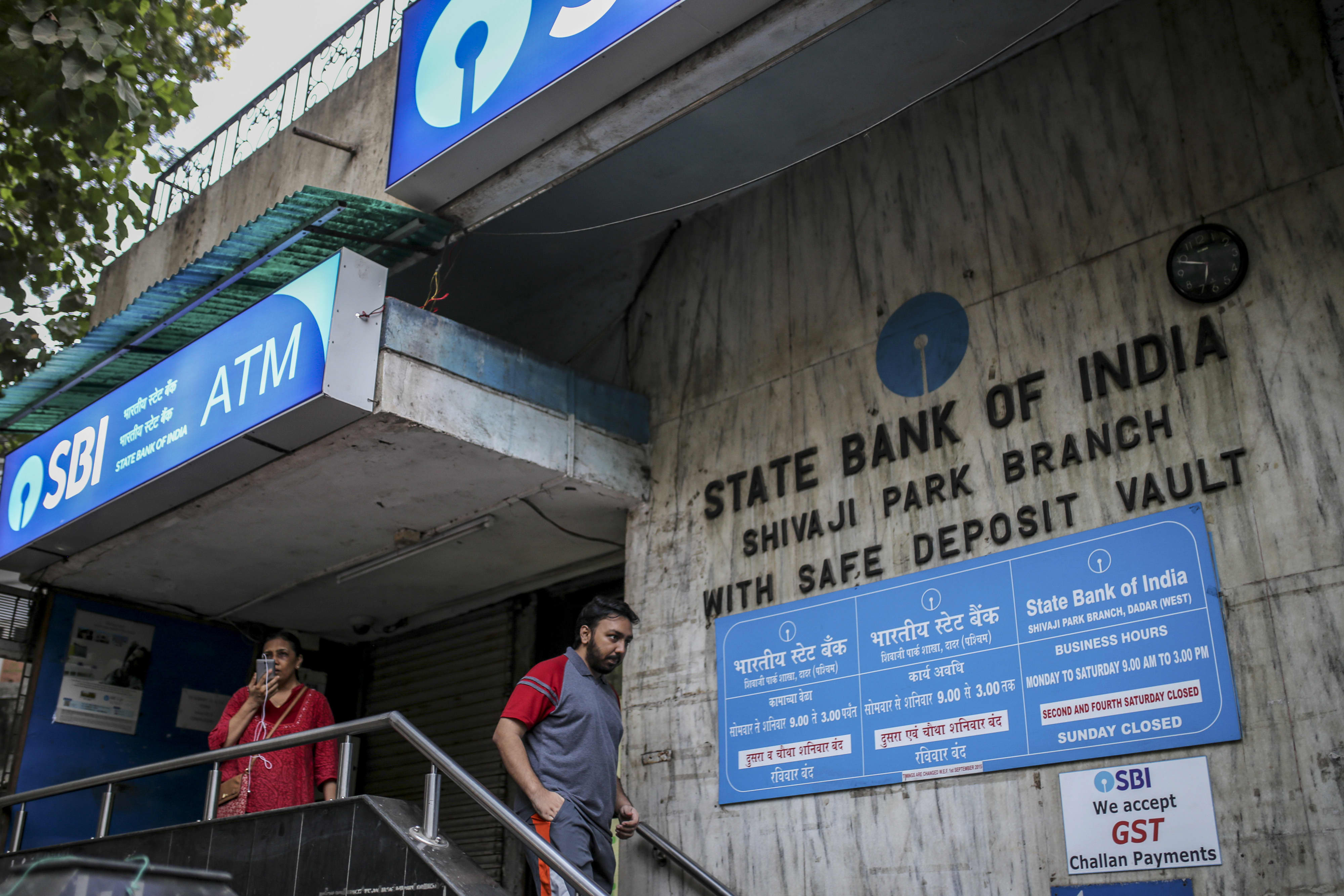
Customers exit from a State Bank of India Bank (SBI) branch in Mumbai, India.
Dhiraj Singh | Bloomberg | Getty Images
Some signs of weakness have shown up in the Indian economy in recent months, but the country's state banks are not the culprit behind those issues, the chairman of India's largest lender said Thursday.
Several recent indicators pointed to a slowdown in economic activity in India, which is Asia's third-largest economy and one of the fastest-growing in the world. Those signs include a decline in retail car sales and slowing growth in airline passenger traffic — which some critics partly blamed on India's troubled government-owned banks.
"I don't think that is a correct statement," Rajnish Kumar, chairman of the State Bank of India, told CNBC's Mandy Drury at the Asian Development Bank's annual meeting in Fiji.
India's state banks have been struggling with high levels of bad debt on their balance sheets, which prompted authorities to step in and clean up the sector. Those lenders control about 70% of all banking assets in the country and are a major source of funding for Indian companies. So, some experts have said that stresses in those banks could threaten economic growth.
But Kumar, whose bank is owned by the government, said many such financial institutions have improved their standing.
"Many of these state lenders are coming out of the loss situation, which was prevailing in the previous quarters and the last financial year," he said. "Gradually, the banking system is coming out of this stressed assets problem."
The chairman added that India's economy is still growing at around 7%, which he considers "not a bad performance." But expectations on India have always been higher, he added.
"For a country like India ... still a lot of development can happen. Per capita income is low, so a growth rate higher than 7% is what everyone is expecting and the bar is high. The economy is being measured against that bar," said Kumar.
No comments:
Post a Comment